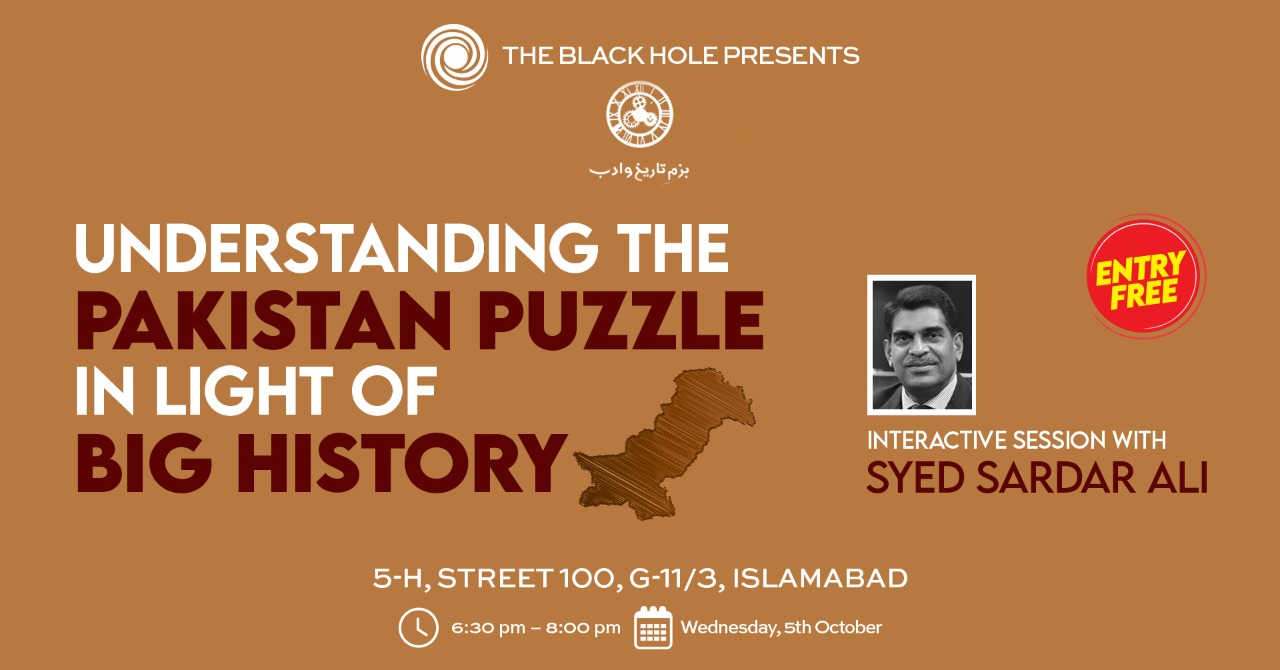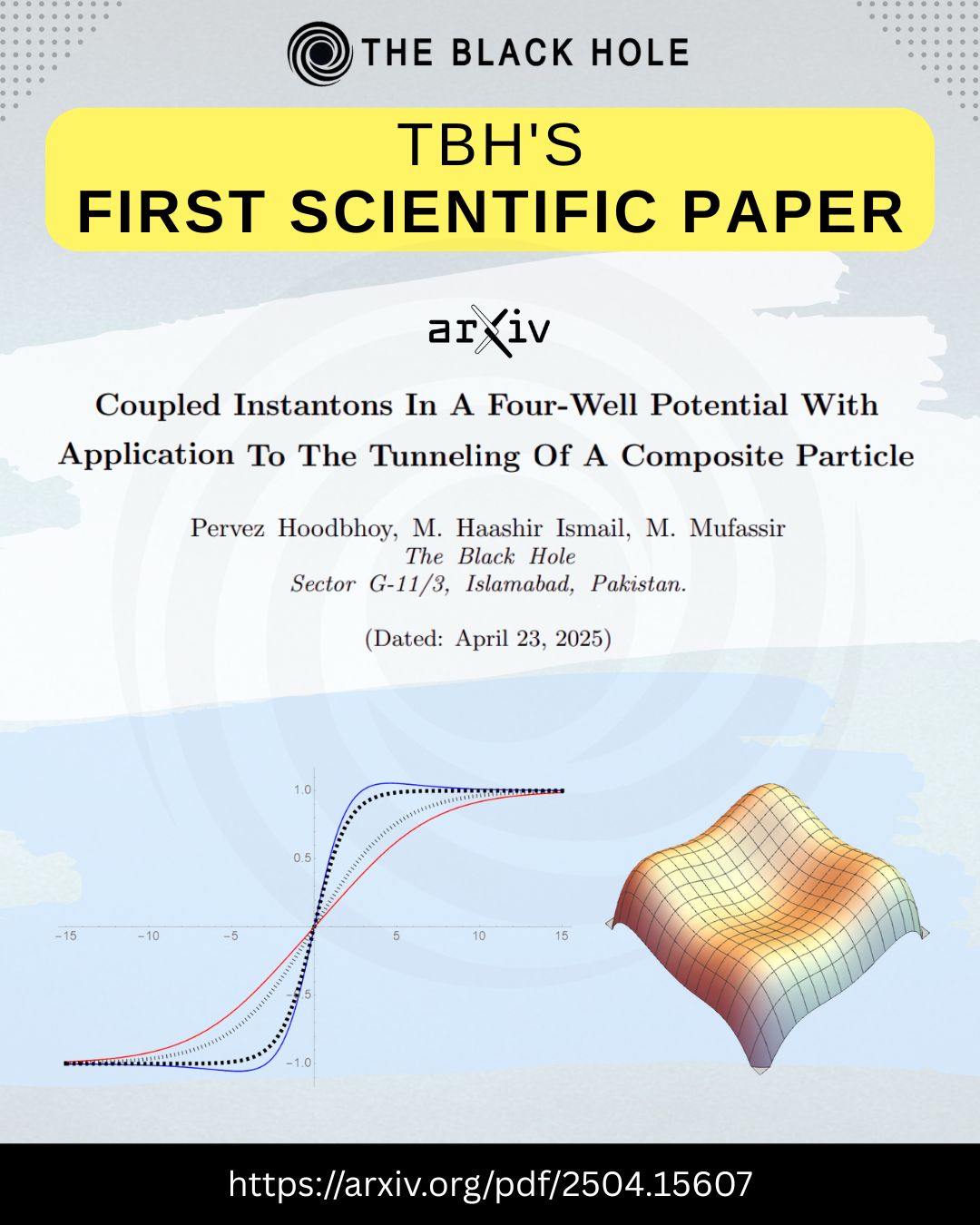
Understanding the Pakistan Puzzle in Light of Big History
For 190 thousand years human life depended upon the bounties of nature. Agriculture, the imitation of nature by humans, evolved for five millenniums before it could sustain complex societies. In agricultural civilizations the system of society depended upon the forces of production. The invention of “Philosophical Rationalism” by Greeks laid the foundations of a society capable of discovering and harnessing the power of nature’s laws. In the resulting archetype of industrial civilization, society forms the base which in turn drives production – a reversal of causal relationship between society and production.
About the speaker
Academic Qualifications
Master in Public Administration – Harvard (1996-98)
Master in International Relations – Japan (1989-91)
BS Mech. Engineering – UT Austin (1983-86)
Work Experience
Financial and Private Sector – World Bank, Washington, DC
International Dept. – Industrial Bank of Japan, Tokyo
Middle East Business Dept. – Sony Corp., Tokyo
Engineering Dept. – ICI Pakistan, Ltd.
Syed Sardar Ali did his F.Sc. from Govt. College Lahore and Bachelor of Science in Mechanical Engineering from the University of Texas at Austin. He earned his first master’s degree in International Relations from Japan and worked for Sony Corporation and the Industrial Bank of Japan in Tokyo. He later earned Master in Public Administration (MPA) from Harvard where he was a student of Prof. Samuel Huntington. Upon graduation he joined the World Bank in Washington, DC and worked in the Financial and Private Sector Unit in the Europe and Central Asia region until 2002. Sardar Ali, who runs a number of businesses in Islamabad and Lahore, is the Chairperson of Crescent Foundation. He has one daughter and three sons.
